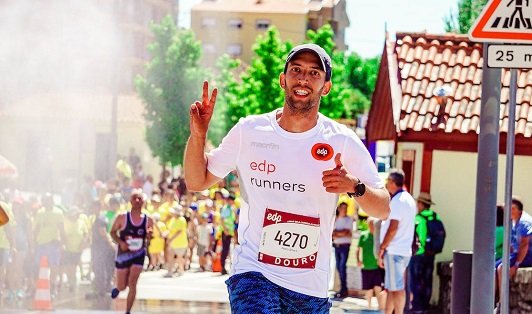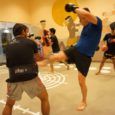Introduction
When you’re an athlete, your body is your tool. To get the most out of it, you need to look after it. This means holistically looking after yourself and making sure that everything from your diet to your sleeping patterns is in check. But what about the physical side? How do athletes take care of their bodies? Here are some top tips for staying healthy.

Visiting sports physio
Sports physios can help prevent injuries and get you back into the game faster. A sports physio is a special type of physiotherapist who treats athletes and helps them to stay healthy. They may also be called athletic trainers or rehabilitators. A professional sports physio like sports physio in Burwood involves some traditional physiotherapy methods, such as massage and stretching exercises, but it also includes more specialized procedures that are tailored to your needs as an athlete in training or competition.
Sports physiotherapy can help you prevent injury by identifying weak areas in your muscle strength or flexibility before they become problematic for performance on the field or court. It can also help with rehabilitation after an injury occurs; for example, if you injure your back while playing football (soccer), a sports physio would work with you on exercises to strengthen muscles around the spine so as not to cause further damage when returning into play quickly after suffering from this injury
Use MOCAP Technology
MOCAP technology allows athletes to use sensors to measure their movements and the amount of exertion they put on their bodies. This can help them improve their performance, as well as prevent injury. Technology is a great tool for anyone who wants to stay healthy, whether they’re just starting or have been playing sports for years.
Cool down after exercise
It’s important to cool down after exercise. The cool-down period allows your heart rate to return to its resting state, and it helps prevent dizziness and other symptoms of hyperventilation. It also allows the body to slow down gradually and prevents muscle cramps, which can be caused by sudden movements that stretch the muscles too quickly.
Cooling down can be as simple as walking or riding a bike at a moderate pace for five minutes after you finish exercising, or it may be more involved, depending on what kind of workout you just did. If you’ve been running hard for 20 minutes straight, cooling down with stretches is probably in order; if you’re just finishing up an hour-long yoga class where flexibility was emphasized throughout the session (as opposed to speed), then simply standing up slowly will suffice.
Soak in Epsom salt
Soaks are an excellent way to improve soft tissue and joint mobility, which can help athletes recover from injury and prevent soreness. Soaking in a bathtub or hot tub is easy, but if you don’t have access to one of these, you can also fill your bathtub with water as hot as you can stand it and add Epsom salts (which are sold at most drug stores). The amount of time you soak for depends on what kind of soak it is if your goal is relaxation, soaking for five minutes will do the trick; if your goal is recovery, fifteen minutes should suffice. If possible, try to soak two or three times per week after strenuous exercise sessions.
Eat healthy food
Eating a healthy diet is an important part of taking care of your body. Athletes need to eat a balanced and varied diet, with plenty of fruit and vegetables, as well as foods rich in protein. Athletes should also avoid processed or junk food, fast food, saturated fats (such as butter and cream), salt, and refined sugars such as high fructose corn syrup. Some athletes may need to limit calorie intake during training periods so that they can lose weight or maintain their weight at the desired level.
Chocolate milk is sometimes recommended for post-exercise recovery because it contains whey protein which helps repair muscles after exercise and carbohydrates which are needed for energy replacement following intense physical activity
Remember to drink water
- Drink water throughout the day if you are thirsty, but don’t drink too much at once.
- Try to drink about two cups (16 ounces) of water first thing in the morning, and then another eight cups throughout the day, this will help keep your body properly hydrated and give your metabolism a boost.
- When you’re eating, try not to drink any other liquids while you’re eating because this can make it harder for your body to digest the food properly. It’s better if you wait until after dinner or an hour later before having anything else besides water; if that’s not possible then try waiting until after dessert instead.
Use a foam roller
If you’re not using a foam roller, you’re missing out on some serious benefits. Foam rollers are used for a variety of purposes and come in many different sizes and shapes. They can be used to massage out knots in your muscles, help improve circulation, and loosen up after exercise or playing sports. They can also be used as tools to increase flexibility by rolling over the body while holding certain positions (such as lying on the stomach with hands behind the head).
Some people have been told that foam rolling is bad for them because it causes inflammation which could lead to injury. However, there isn’t much evidence showing that foam rolling causes damage or pain when used correctly by healthy individuals who don’t have any existing conditions affecting their joints or muscles such as arthritis or fibromyalgia. Anyone considering using a foam roller first must consult their physician if they have any questions about whether it’s safe for their current condition before trying it out themselves.
Conclusion
In conclusion, athletes have a lot of responsibilities when it comes to taking care of their bodies. They need to be physically fit and mentally sharp to perform well. They must eat healthy foods and get enough sleep, but it’s also important that they stay in shape with regular exercise so that they don’t get injured during practice or competition. This is why many players go on vacations after playing long seasons so that their minds can rest while their bodies recover from all the hard work.




